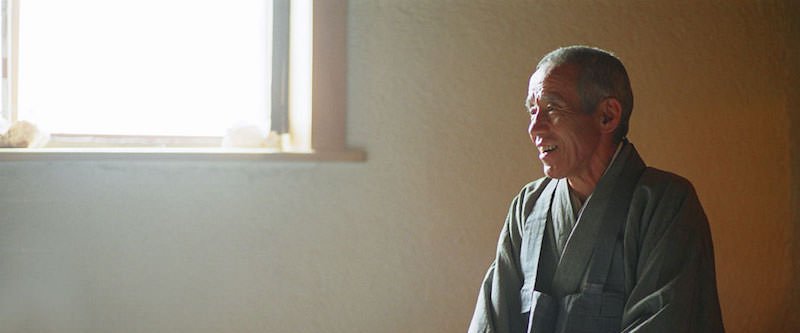About Kôbun, Steve Jobs Zen teacher
Kôbun Otogawa was an unconventional Zen master. He was a modern thinking person who refused to be addressed by an honorable title, like “Roshi” or “Sensei”. He told his students just to call him by his name like he were a friend.
Who was Kôbun?
Kôbun was a student of Kôdô Sawaki Roshi, who should be familiar to the readers of my own book, "The Zen Programmer". As Sawaki Roshi's words touched me deeply, I was very happy to hear both Masters sat together. Sawaki always highlighted the importance of Zazen (sitting meditation), and it appears Kôbun shared his opinion.
According to "kobun-sama.org", he was also exceptionally skilled in the traditional Zen arts. He practiced Kyudo (archery) with Kanjuro Shibata Sensei in Toyko. Plenty of images of him practicing calligraphy are on display on the website as well. I thought I read somewhere he even played the Shakuhachi. But I couldn't find proof anywhere. I wouldn't be surprised.
An extraordinary rebell
But the monastery's abbot, Chino Roshi, declined Kôbun's request to relocate the three times Kôbun asked for allowance. According to tradition, the student may ask his master three times to leave the monastery. If the master rejects his request all three times, the student needs to accept the decision and stay.
Chino Roshi wanted Kôbun to become the new abbot in future, and that is most likely why he didn't want him to leave. But Kôbun ignored his master and went to the USA. Just as he ignored his title, he demonstrated once more what an extraordinary Zen master he was with his decision to go to California. Following the Zen tradition as Chino Roshi's dharma heir, Kôbun had the additional name Chino himself: Kôbun Chino Otogawa.
A "dharma heir" is the person who continues the teachings of his master. Later, when Chino Roshi realized Kôbun wouldn't return, Kôbun had to return to his own name Kôbun Otogawa. That is why some books refer to Kôbun Chino instead of Kôbun Otogawa.
In his biography about Steve Jobs, Walter Isaacson wrote that his students felt Kôbun spoke a horrible English, full of poetic and dramatic sentences. Steve met him almost daily for meditation. Sometimes they also meditated for a whole weekend, which is called Sesshin.
Steve wanted to become a monk
In a way, it is thanks to Otogawa that we can use iPhones today. He refused to ordain Steve Jobs. The myth is that Kôbun recommended Steve to stay in the company because "he had some big things" to do. But in fact, Kôbun realized Steve was having a hard time sitting still and having a hard time sitting still for a single hour. He mentioned this in a video which I will write more about in the next post on this blog.
In the late 1980s, Kôbun became a frequent traveler between monasteries in the US and Europe. More than one hundred students received precepts from him, most often lay ordination.
He died in Switzerland in 2002. His passing was tragic. He drowned in a swimming pond while he tried to rescue his five-year-old daughter.
If you are considering starting meditation, you might want to look at one of the meditation centers or groups following his tradition.
Further reading
- Kôbun: Nicolas Schossleitner. Permission for publishing granted by http://www.kobun-sama.org.


